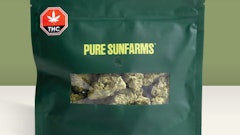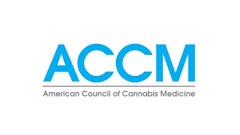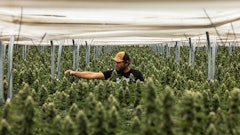
The U.S. Food and Drug Administration (FDA) on Monday announced the issuance of final guidance for clinical research on cannabis.
The 10-page guidance, titled “Cannabis and Cannabis-Derived Compounds: Quality Considerations for Clinical Research,” contains nonbinding recommendations that cover clinical research associated with the development of drugs that contain cannabis or cannabis-derived compounds.
Today, FDA issued a final guidance which provides the agency’s current thinking on several topics relevant to clinical research related to the development of drugs containing cannabis and cannabis-derived compounds: https://t.co/wCsVRpi8J6 pic.twitter.com/F2UgQXY9uO
— FDA Drug Information (@FDA_Drug_Info) January 23, 2023
An official notice on the guidance was published in the Federal Register Jan. 24.
“This guidance outlines FDA's current thinking on several topics relevant to the development of cannabis and cannabis-derived human drugs, including the source of cannabis for clinical research; general quality considerations for developing human drugs that contain cannabis and cannabis-derived compounds; and calculation of percent delta-9 tetrahydrocannabinol (THC) in botanical raw materials, intermediates, drug substances, and drug products to determine their control status,” FDA officials wrote in the notice.
This week’s guidance finalizes draft guidance that the FDA issued in July 2020, according to the notice.
While the 2018 Farm Bill federally legalized industrial hemp, defined as cannabis that contains no more than 0.3% THC by dry weight, it also “preserved FDA’s authority to regulate products containing cannabis or cannabis-derived compounds under the [Federal Food, Drug, and Cosmetic] FD&C Act and section 351 of the Public Health Service Act,” according to the guidance.
“Human drugs that contain cannabis and cannabis-derived compounds (regardless of whether the products fall within the definition of hemp under the 2018 Farm Bill) are generally subject to the same authorities and requirements, including quality standards, as FDA-regulated drug products containing any other substance,” the guidance states.
Until recently, cannabis for clinical research was grown by one entity, the University of Mississippi, under the National Institute on Drug Abuse (NIDA) Drug Supply Program (DSP). Now that new sourcing options are available, the FDA’s guidance clarifies the following:
- Sources of cannabis with not more than 0.3% delta-9 THC on a dry-weight basis and those over 0.3% delta-9 THC on a dry-weight basis may be used for clinical research if deemed to be of adequate quality by FDA when reviewed as part of an [investigational new drug application (IND)].
- Sponsors and investigators may use the NIDA DSP as a source of cannabis over the 0.3% delta-9 THC threshold, or they may use other sources authorized by [the Drug Enforcement Administration (DEA)] to provide Schedule I cannabis materials for research. Sponsors can find DEA regulations for importation of controlled substances in 21 CFR 1312. A list of DEA-authorized growers of Schedule I cannabis is available online. [The FDA] refer sponsors and investigators to the DEA for guidance and answers to frequently asked questions about cannabis production and sources for research.
“As part of an IND for any drug (including drugs that contain cannabis or cannabis-derived compounds), sponsors are expected to show that they can consistently manufacture a quality product,” the guidance states. “In each phase of clinical investigation, sponsors must submit sufficient information to demonstrate the identity, quality, purity, and potency or strength of the investigational drug.”
FDA officials told reporters in December that the agency may take additional steps in the coming months to regulate CBD products, specifically.
RELATED: Question: Will the FDA Take Steps to Regulate CBD This Year? Answer: Well… Maybe.
While the agency’s official stance is that CBD is a drug ingredient and therefore cannot be added to foods or marketed as dietary supplements, officials said the FDA is not only actively studying whether cannabis compounds are safe in food products, but that it also plans to recommend a regulatory approach to cannabis-derived products this year.
In the meantime, the FDA issued its most recent batch of warning letters to CBD companies in November, claiming that the businesses were illegally selling food and beverage products containing CBD.

























